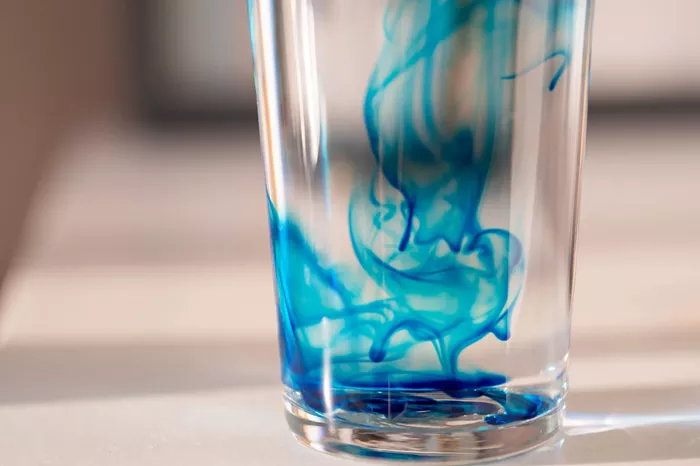Recently, a video surfaced on social media showing Robert F. Kennedy Jr. seemingly adding two droppers of blue liquid to his drink while aboard a plane. Viewers speculated that the liquid was methylene blue, a substance known for its various health-related uses.
Methylene blue has a long history in medicine, dating back to the late 1800s. Initially used as a dye and treatment for malaria, it has gained attention in recent years for its potential to improve brain health and slow the effects of aging.
Kennedy, who recently took office as the U.S. Secretary of Health and Human Services, is known for his unconventional approach to health, advocating for the use of alternative therapies like psychedelics and nutraceuticals. Although Kennedy has not confirmed the identity of the blue liquid, the video has sparked interest in methylene blue, prompting discussions about its uses and effectiveness.
What is Methylene Blue?
Methylene blue is a synthetic dye with a variety of medical applications. It was one of the first chemotherapies tested and was used effectively to treat malaria, though more modern treatments have largely replaced it. Currently, the FDA has approved methylene blue primarily to treat methemoglobinemia, a condition where blood cells are unable to carry oxygen efficiently. It is also used off-label in certain shock treatments during coronary procedures.
In recent years, its antioxidant properties have led to research into whether it can improve brain health, particularly in treating neurodegenerative diseases like Alzheimer’s and Parkinson’s.
Can Methylene Blue Improve Brain Health?
Methylene blue has shown promise in animal studies as a potential brain health enhancer. Research suggests it may help preserve cognitive function by improving mitochondrial efficiency. As mitochondria become less efficient with age, methylene blue may be able to slow the aging process of brain cells.
Dr. Kan Cao, a researcher at the University of Maryland, has studied methylene blue’s effects on brain health and found that it could improve mitochondrial function, which in turn supports brain energy production. This could be beneficial in preserving cognitive abilities as we age.
Additionally, methylene blue appears to improve the activity of cytochrome oxidase, an enzyme that is crucial for brain energy production. It also reduces nitric oxide, which can block energy production in cells, helping brain cells use oxygen more efficiently.
Should You Try Methylene Blue?
While methylene blue has exciting potential for brain health, experts caution that it should only be used under medical supervision. Available in both liquid and powder forms, methylene blue can have side effects, particularly when it crosses the blood-brain barrier.
Common side effects include dizziness, confusion, and headaches. It may also interact negatively with certain medications, such as antidepressants, leading to serotonin syndrome, a dangerous condition caused by excessive serotonin in the body.
Dr. Cao advises that anyone interested in using methylene blue should consult a healthcare provider to determine the correct dosage and ensure it is safe to use based on individual health conditions.
It is also important to use only pharmaceutical-grade methylene blue, which undergoes safety testing to avoid impurities that could cause unwanted side effects.
In conclusion, while methylene blue shows promise in various health applications, more research is needed to establish its safety and efficacy, particularly for long-term use. Consulting a healthcare professional before trying it is essential for anyone considering this potential treatment.
Read more:
- Health Experts Offer Tips To Reduce Exposure To Harmful Microplastics
- Personalized mRNA Vaccine Shows Potential in Reducing Pancreatic Cancer Recurrence, Small Study Suggests
- Rising Healthcare Costs: Diabetes And Heart Disease Lead Spending Surge


